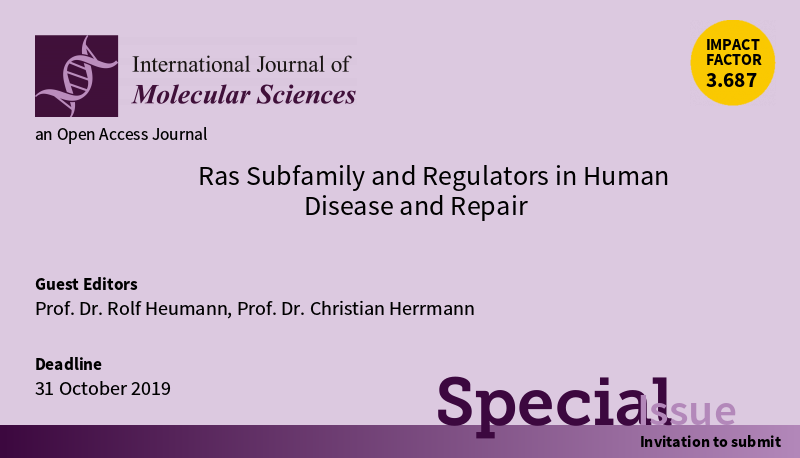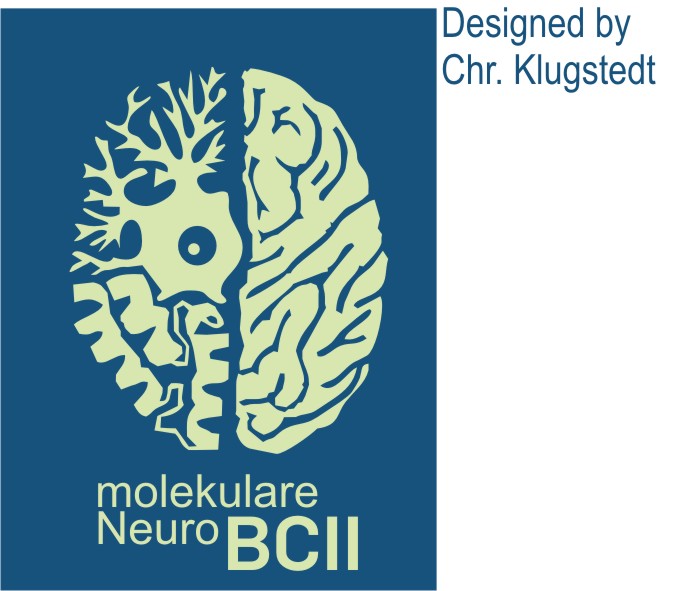Invitation to submit articles
to the International Journal of Molecular Sciences
for the upcoming Special Issue “Ras Subfamily and Regulators in Human Disease and Repair”

Dear Colleagues,
We believe that the impact of Ras and Ras-like proteins on brain cell functions such as neuronal survival, neuronal cell volume, synaptic transmission, synaptic connectivity, neuronal guidance, and myelination is rather underestimated. Ras and Ras-like proteins appear to be involved in neurodegenerative diseases i.e., Alzheimer’s, Parkinson’s and autism spectrum disorders. The therapeutic potential of Ras and Ras- like proteins as pharmacological targets or as agents counter-regulating the disease state by enhancement of tissue regeneration using novel strategies in magnetogenetics or optogenetics are just emerging. Manuscripts may cover either original data in a specialized field, short reviews or a comprehensive review e.g., bridging molecular and clinical perspectives. Contributions to any aspect discussed here are encouraged, as well as related topics not explicitly mentioned.
- Ras-like proteins
- RASopathy
- neurodegenerative diseases
- GTPase activating proteins
- guanine nucleotide exchange factors
- synaptic transmission
- neuronal regeneration
- magneto protein therapy
- optogenetics
- …
Prof. Dr. Rolf Heumann
Prof. Dr. Christian Herrmann
Guest Editors
Submission deadline: 31 October 2019
Website: https://www.mdpi.com/journal/ijms/special_issues/Ras-like
IJMS Editorial Office: ijms@mdpi.com, nicole.peng@mdpi.com
main points of research
Neuronal connectivity is regulated not only during development but also in the adult brain, in response to brain activity. The small GTPase protein Ras is a universal intracellular signaling protein that may mediate such mechanisms of brain plasticity through transient activation of downstream protein phosphorylation signaling cascades. We have developed a synRas animal model expressing permanently activated Val12 Ras, selectively in neurons. Using this model we investigate if neuronal Ras activity is involved in the dynamics of dendritic spine formation in brain neurons, in the regulation of synapse number and their efficiency, in the regulation of neurogenesis in the hippocampus. The latter is thought to mediate working memory processes. We also investigate what is the molecular mechanism of Ras-mediated protection against lesion-induced neuronal degeneration. Formation of intracellular protein-protein interactions involving protein tyrosine phosphatases are studied in vivo and in vitro. The molecular mechanisms are analyzed by protein nuclear magnetic resonance structure determinations and mass spectrometric methods.
Legal Notice:
Prof. Heumann and his group accepts no liability, within the bounds of law, for the content of its web presence or for any third party pages given by links on its pages. The Ruhr-Universität expressly distances itself from the content of any linked pages and does not consider these pages to be its own.ss.


